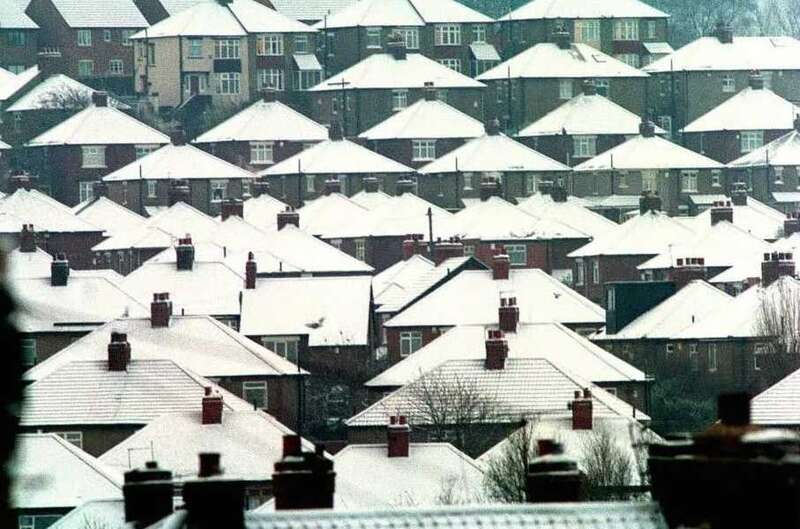A 'QUICK-FIX' energy saving solution that promises to cut bills could actually turn out to be life ruining.
Installing insulation around the home is a well-known way to stop heat loss and reduce gas and electric costs.

Loft roll, cavity wall and underfloor insulation are some of the options, while DIY measures like window tape and foam lagging for pipes can be cheaper but effective.
But one method - spray foam insulation - could leave households unable to sell their home or get a mortgage.
The method could also leave people thousands of pounds out of pocket to fix and even slash the value of your home.
 I'm a property expert - my guess for the cheapest time to buy a home this year
I'm a property expert - my guess for the cheapest time to buy a home this year
One couple affected have said they're lives "fell apart" after the insulation was installed in their loft and they later found it was unsalable.
The Sun revealed how lenders are routinely rejecting mortgage applications for houses with spray foam insulation in the roof, affecting an estimated 250,000 homes.
While it's not illegal, it must be done by professionals and is only suitable in certain circumstances.
Rogue traders are taking advantage of older and vulnerable people who are desperate to reduce their rising gas and electric bills.
Wales Against Scams Partnership (WASP) has warned that it has seen a spate of these chancers misleading older people worried about their bills.
The method "can all too often be marketed as an easy and simplistic fix, the Royal Institute of Chartered Surveyors (RICS) said in a report last year to help consumers.
"In fact the installation of spray foam should really be seen as a significant and fundamental alteration to a home which needs careful consideration and planning," it added.
WASP said one person targeted was talked in to spending £3,500 on spray foam, only to find they were unable to sell their house.
They were forced to spend another £2,000 to remove it and by the time they put it back on the market two months later the value of the property had fallen by £15,000.
Sam Young, policy officer at charity Age Cymru and head of WASP, said: “We understand that many older people are worried about how they are going to pay their fuel bills this winter and as a result may be even more vulnerable to rogue traders.
 Inside Camilla's £850k 'guilty pleasure' country pad - and Charles 'hates' it
Inside Camilla's £850k 'guilty pleasure' country pad - and Charles 'hates' it
“Previous studies have shown that older people are the most likely age group to be targeted by scammers, with data from National Trading Standards showing that 85% of victims of doorstep scams are over 65."
The group urged older people to seek expert advice first.
Rogue traders can often target older people on the door step, where they can use high pressure selling tricks to agree to an installation.
But cold calls are also a tactic used by cowboy installers, and there are also online adverts preying on people.
Tony Neate, chief executive officer at Get Safe Online, said: “Although traditionally you think of rogue builders approaching you on your doorstep, it’s also important not to be conned by online adverts. Before you commit, make sure you do your homework.
"Check that the builder is reputable by looking at reviews, and ensure your mortgage provider agrees with any alterations you’re thinking of doing.”
































